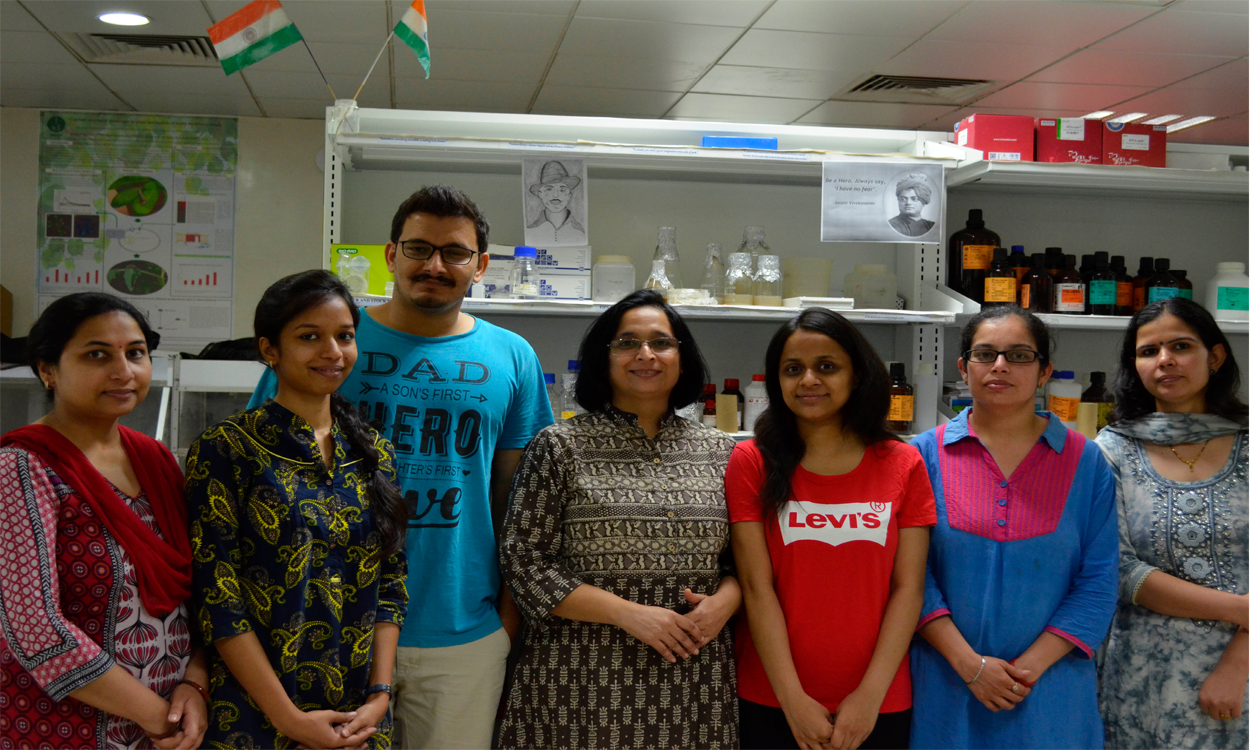
DBT- NIPGR researchers have uncovered novel heat stress controlling pathways by comparing transcriptome profiles of a heat tolerant and a heat sensitive tomato cultivar from Indian sub-continent for improving thermotolerance.
MAY 26, 2020 | BY RATNESHWAR THAKUR
In the face of global climate change, heat stress has become a major challenge. High temperatures not only hamper proper growth and development of a plant but also adversely affect the crop yield as well as fruit quality. Tomato is among the world’s most consumed cash crops. Like many other crops, tomato is highly sensitive to increased temperatures. Unraveling the mechanistic signaling frameworks that have evolved in naturally heat stress resistant/sensitive plants could be vital for harnessing novel stress-responsive regulators to develop heat stress resilient plants.
A research group at DBT- NIPGR, New Delhi has uncovered novel heat stress controlling pathways by comparing transcriptome profiles of a heat tolerant and a heat sensitive tomato cultivar from Indian sub-continent for improving thermotolerance.
In a cell, the DNA contains certain units called genes that are expressed under specific conditions by way of a process called transcription. One of the major forms of these transcripts are the messenger RNAs (mRNAs) that are templates for protein synthesis. A transcriptome represents the complete set of RNA molecules expressed in a particular cell type of an organism. Thus, transcriptome profiling involves the quantification of gene expression which enables to understand the genetic regulation of a particular cell type or tissue samples of an organism.
In this study, NIPGR researchers first selected the best ‘contrasting-pair’ of tomato cultivars by comparing nine cultivars from the Indian-sub continent climatic zones exhibiting either heat stress tolerance or sensitivity. They identified CLN1621L as the most tolerant and CA4 as the most sensitive tomato cultivars by judging from their survival potential in heat stress conditions and biochemical/physiological parameters that are affected in a plant during heat stress as well as assessment of plant yield during heat stress.
Next, by studying comparative heat-responsive mRNA transcriptomic signatures between the contrasting tomato cultivar-pair, they identified conserved to genotype-specific differentially expressing genes (DEGs). Importantly, the NIPGR group has identified 21 DEGs that are antagonistically regulated between the tolerant CLN1621L and the sensitive CA4 upon heat stress. Researchers say, the role of many of these genes in high temperature tolerance is not well established. These antagonistic genes serve as marker genes that can be utilized for crop improvement towards enhanced heat stress tolerance. Those genes that are highly expressed in tolerant cultivar but are down-regulated in sensitive cultivar in response to heat stress when over-expressed in a plant should provide thermotolerance. Similarly, DEGs that are up-regulated in sensitive variety and down-regulated during heat stress in tolerant cultivar when silenced should increase thermotolerance.
To assess this hypothesis, the group overexpressed two antagonistic genes, viz., Notabilis (an enzyme regulating rate limiting step of abscisic acid hormone biosynthesis) and ASAT (plant pathogen defense gene belonging to acyl-transferase family proteins), that are up-regulated in tolerant variety only. They found enhanced survival of tomato plants overexpressing these genes. Conversely, reducing their mRNA levels led to heat stress sensitivity in tomato plants. Furthermore, they silenced another antagonistic gene, a serine-proteinase inhibitor family protein viz., Pin-type proteinase inhibitor-II, that is up-regulated in sensitive variety (CA4) only. When this gene was silenced, they found enhanced performance of tomato plants when exposed to heat stress.
Over-expressing heat-genes that were up-regulated in tolerant variety only or knocking-down genes that are up-regulated in sensitive variety only by CRISPR-Cas/RNAi technology could be highly promising for engineering for thermotolerance. Many of these genes have potential to provide tolerance to other abiotic stresses as well as in plant defense.
The study has been published in Plant Biotechnogy Journal. Besides Saloni Mathur research team included Sonia Balyan, Sombir Rao, Sarita Jha, Chandni Bansal and Jaishri Rubina Das from DBT-NIPGR, New Delhi. The study was supported by the grants from NIPGR and DST-SERB, India.
Journal Reference:
Characterization of Novel Regulators for Heat Stress Tolerance in Tomato From Indian Sub-Continent
